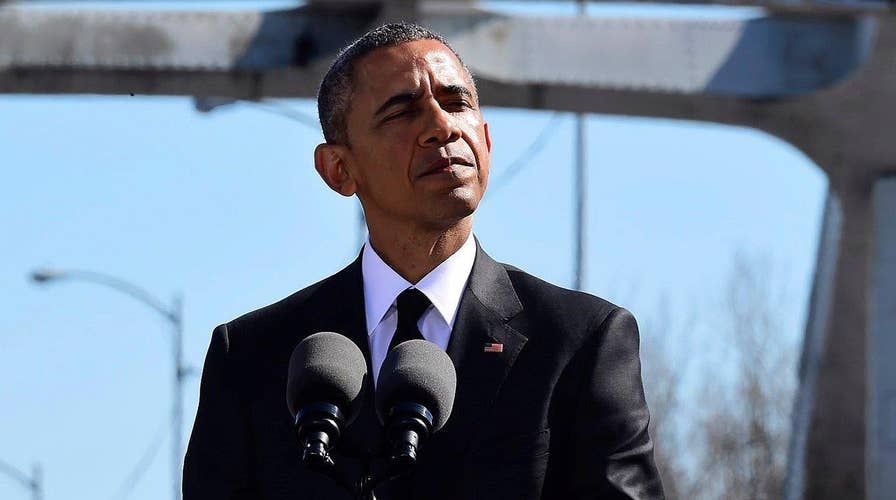Is President Obama leaving behind a strong legacy?
'The O'Reilly Factor' analyzes the outgoing president's actions and policies
When he took the stage last Wednesday night for his farewell address, Barack Obama made his case for the agenda he doggedly pursued these past eight years – touting gains in the job market, the implementation of the Affordable Care Act, legalized gay marriage and breakthroughs in foreign affairs stretching from Cuba to Iran.
“By almost every measure, America is a better, stronger place than it was when we started,” Obama told the audience in hometown Chicago.
While Obama’s pronouncements were met with applause from the friendly crowd, several of his policies now face an uncertain future as President-elect Donald Trump prepares to take office Friday. The legacy of the 44th president stands to be shaped almost as much by the man who will follow him into the White House and the Republican-controlled Congress as it was by him.
“His legacy is really in the hands of his successor,” Patrick Maney, a presidential historian and professor at Boston College, told FoxNews.com.
No matter what comes next, Obama’s two terms will go down as some of the most active – and controversial – in modern times.
As the first black president, Obama already had claimed his place in history in January 2009. But the ensuing eight years were consequential – whether that was for better, or for worse, is a matter for the historians to decide.
The Economy
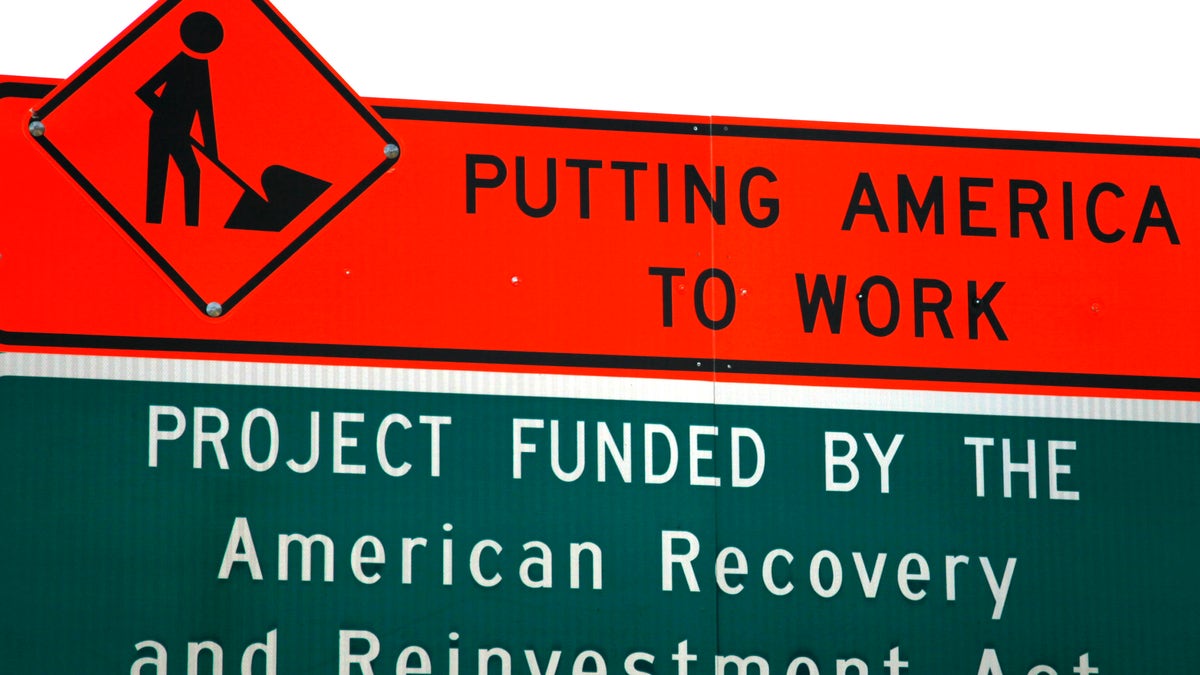
A sign announces a section of road work funded by the American Recovery and Reinvestment Act U.S. economic stimulus plan in the Denver area September 10, 2009. (Reuters)
Maney argued Obama will be graded on “the degree of difficulty of when he took office.” When it comes to the economy, Obama entered office at a period of immense challenge.
He took the oath of office just as the country was embroiled in the worst economic crisis since the Great Depression. After the outgoing George W. Bush administration kick-started a contentious auto bailout package, Obama oversaw the financial lifeline that helped Detroit rebound -- and was able to push through the equally contentious stimulus, which many Republican saw as wasteful but some economists credited with cushioning the blow from the recession.
Over the course of Obama’s two terms in office, U.S. employers added more than 11 million jobs and, following almost a decade of stagnant wages, median household income jumped in 2015.
Despite his administration’s work, the job market for the last two presidential election cycles still has served as a Republican rallying cry. They point to a shrinking labor force due in part to more American retirees and to younger Americans heading back to school, as well as a widening gap between rich and poor amid globalization and technological change.
Some historians say Obama did not get the credit extended to other presidents who faced similar economic crises.
“It was an economic success, but a political failure,” Maney said. “In the 1930s, when people saw bridges and roads being built, they said that was because of [President Franklin Delano Roosevelt]. With the stimulus jobs of the last eight years, nobody said that was because of Obama.”
ObamaCare
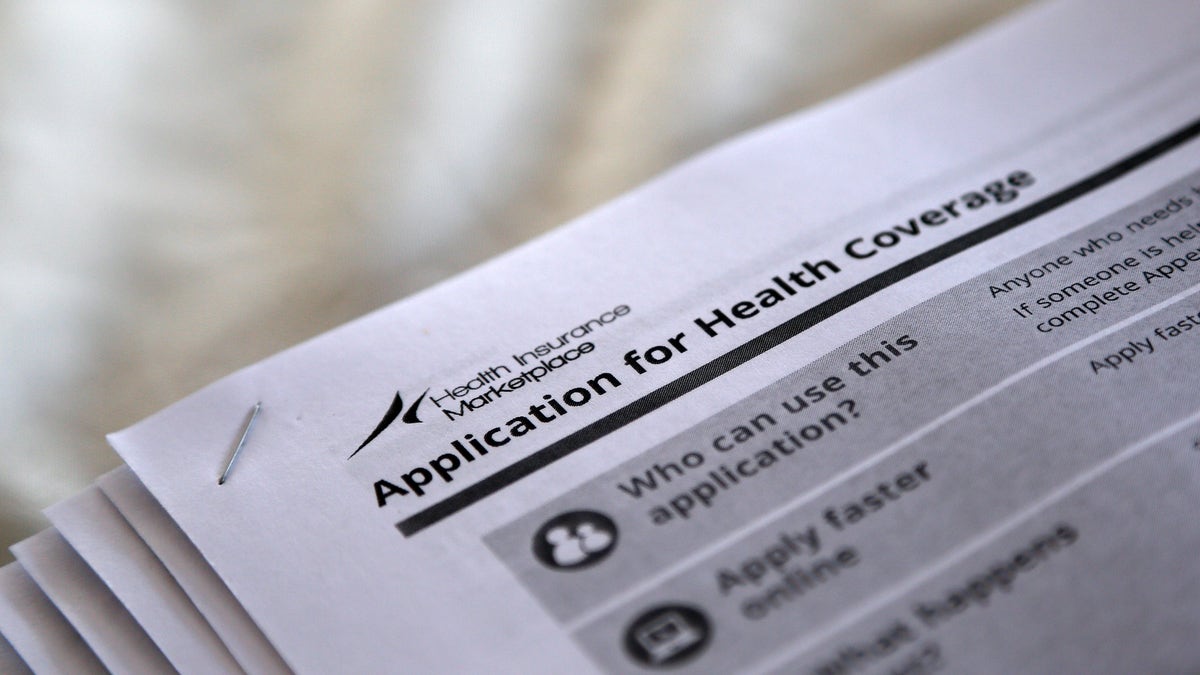
The federal government forms for applying for health coverage are seen at a rally held by supporters of the Affordable Care Act, widely referred to as "Obamacare", outside the Jackson-Hinds Comprehensive Health Center in Jackson, Mississippi October 4, 2013. (Reuters)
Whether history will give Obama more credit than the present on the economy is up for debate, but there is one contentious policy that will be forever attached to his name: The Affordable Care Act, or ObamaCare.
The law passed with no Republican support in 2010 and has since expanded health coverage to an estimated 20 million people, with the help of subsidies and additional Medicaid coverage. The law’s core consumer protections required insurers to cover people who are already ill, and placed limits on the amount the sick and elderly can be billed for health care.
But the ACA also has been saddled with problems including rapidly rising premiums, particularly for those unable to qualify for subsidies, and a decrease in coverage options in some markets.
Some still warn about a “death spiral” leading to an eventual collapse in the insurance market.
Amid such warnings, Trump and his congressional allies are determined to “repeal and replace” the law.
Many want to end the “mandate” to buy coverage – but how they do that while still preserving other politically popular benefits remains to be seen. Lawmakers are at sharp odds over how to proceed, and Obama has openly challenged them to come up with a better plan if they can.
Trump recently told the Washington Post he is close to finishing a plan to replace ObamaCare.
Foreign Affairs

A fighter of the Islamic State of Iraq and the Levant (ISIL) holds an ISIL flag and a weapon on a street in the city of Mosul, June 23, 2014. (Reuters)
Inheriting two wars from the previous administration, Obama came into office promising to wind those down and keep American troops out of conflicts abroad.
But the recipient of the Nobel Peace Prize will now leave a foreign policy record under fire from both sides of the aisle – to his liberal critics, Obama wrongly continued a state of perpetual war, expanding the U.S. drone campaign to no fewer than seven countries; to hawkish conservatives, his restraint in deploying American military power elsewhere allowed bloody conflicts to worsen.
The president, per his campaign promises, was able to draw down the number of troops in both Iraq and Afghanistan. But critics argue the withdrawal in the former ultimately left a power vacuum that led to the rise of the Islamic State and the return of U.S. forces to the region.
Perhaps the biggest blotch on his record is the still-raging civil war in Syria. He did not follow through on enforcing the so-called “red line” after Syrian President Bashar al-Assad used chemical weapons. And the administration was criticized for taking only modest steps to nudge Assad out of power. Russia’s more recent military support has only strengthened Assad’s position, while the war itself created a refugee crisis that has overwhelmed Europe and Syria’s neighbors.
“Syria is a demonstration of how international action does not occur without the U.S. getting involved,” Jeffrey Engel, the director of the Center for Presidential History at Southern Methodist University, told FoxNews.com.
Obama’s decision last month not to have the U.S. veto a U.N. Security Council resolution criticizing Israeli settlements in East Jerusalem and the West Bank -- and Secretary of State John Kerry’s speech two days later accusing Israeli Prime Minister Benjamin Netanyahu of undermining the possibility of a two-state solution – also created even more tension in the already-rocky relationship between his administration and the Israeli government.
While Israeli-Palestinian peace was never realized in Obama’s term, the president did log two major diplomatic breakthroughs. He quarterbacked the thaw between the U.S. and Cuba that led to the restoration of diplomatic relations after more than 50 years, and his administration helped broker the Iran nuclear deal that granted the Islamic Republic sanctions relief in exchange for strict monitoring and limits on the country’s nuclear program.
The Iran deal, though, also fueled tensions with Israel and is another policy that could be revisited under the Trump administration.
There is one bold-print, all-caps entry in Obama’s national security legacy, though, that no successor will be able to touch: He green-lighted the U.S. Navy SEAL raid that killed Usama bin Laden.
Regulations
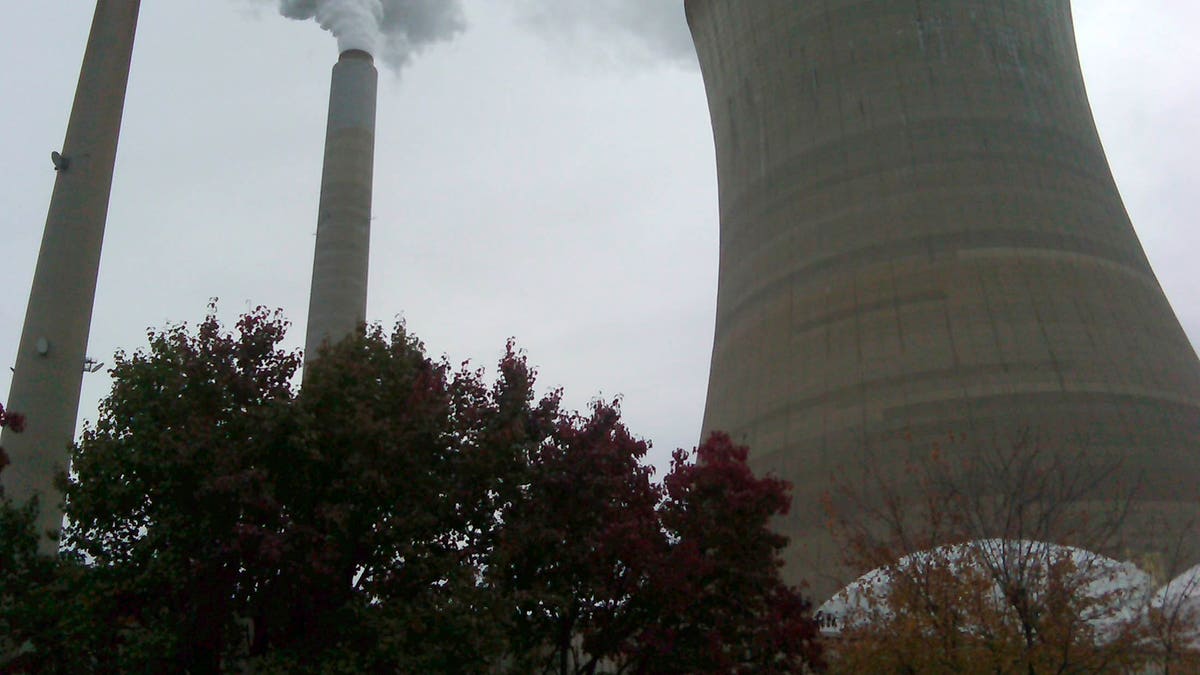
The American Electric Power Company's cooling tower at their Mountaineer plant is shown in New Haven, West Virginia October 27, 2009. (Reuters)
The Obama administration set records for the sheer number of pages in the Federal Register, which lists federal regulations. The Register stood at the end of 2016 at a whopping 97,110 pages – shattering the previous record of 81,405, also set by Obama in 2010.
Many of these regulations were enforced by the Environmental Protection Agency as part of the administration’s plans to curb carbon emissions and combat climate change. The coal industry, which has been on the wane for a number of years as Americans move toward cheaper, cleaner alternatives like natural gas, was hit hard by tighter regulations.
Here, too, Trump has promised to rescind many of those programs including the EPA’s Clean Power Plan and the Mercury and Air Toxics Rule.
Unfinished Business
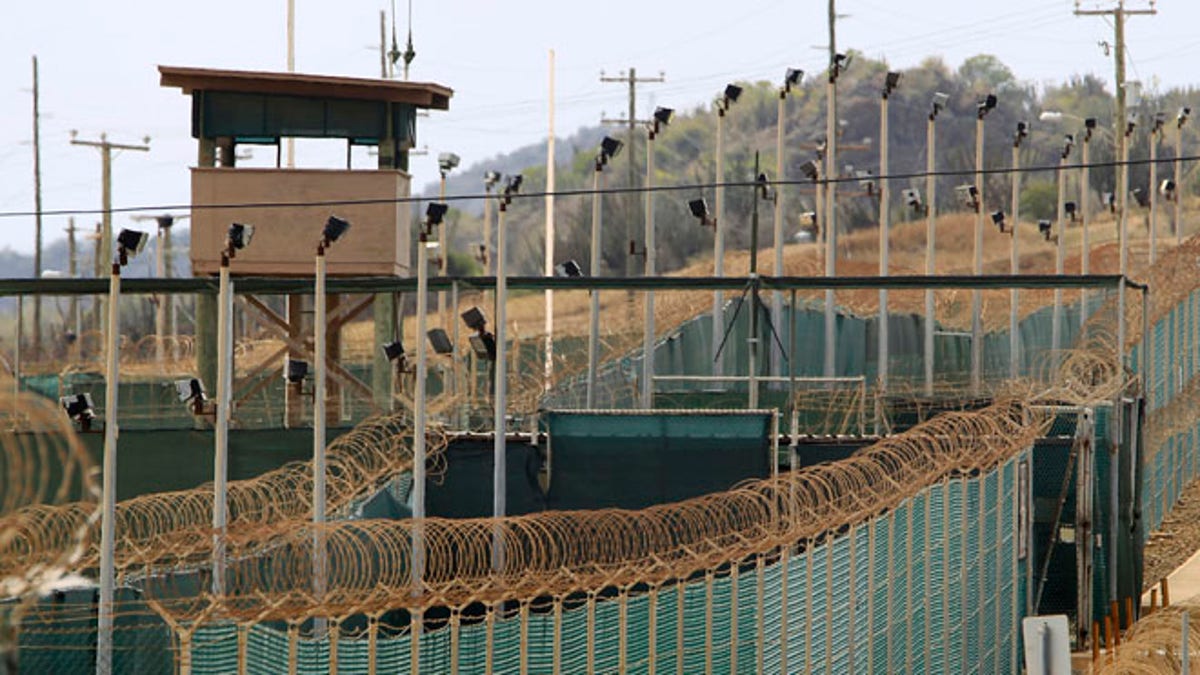
March 6, 2013: The exterior of Camp Delta is seen at the U.S. Naval Base at Guantanamo Bay. (REUTERS)
All presidents leave office with campaign promises they failed to meet, policies that got shelved and projects left half-done.
And Obama had his share.
While comprehensive immigration reform took on greater political importance over the last eight years as the U.S. Latino population grew at record rates, no major legislation was passed. Obama’s executive actions helped keep some young immigrants in the country, but his most recent actions were also blocked in the courts. Obama’s hardly alone, however, in struggling with the issue.
“Given that George W. Bush couldn’t solve it, especially with the advantages he had,” Engel said, “I’m not surprised that Obama couldn’t do it.”
Strong opposition from Republicans and the National Rifle Association also frustrated Obama’s moves to set stricter controls on firearms amid a slew of mass shootings from Newtown and Charleston to Aurora and San Bernardino.
He also was unable to achieve one of his biggest campaign promises: shutting down the Guantanamo Bay prison camp. He has significantly reduced the prisoner population there from the 242 when he took office, but he leaves office with 41 still remaining at the camp.
When Obama entered office in 2009, there also was a great deal of talk about how the country’s first black president would usher in a new “post-racial America.” But during his farewell address, the president acknowledged that “however well-intended,” that idea “was never realistic.”
“Race remains a potent and often divisive force in our society,” Obama said.
